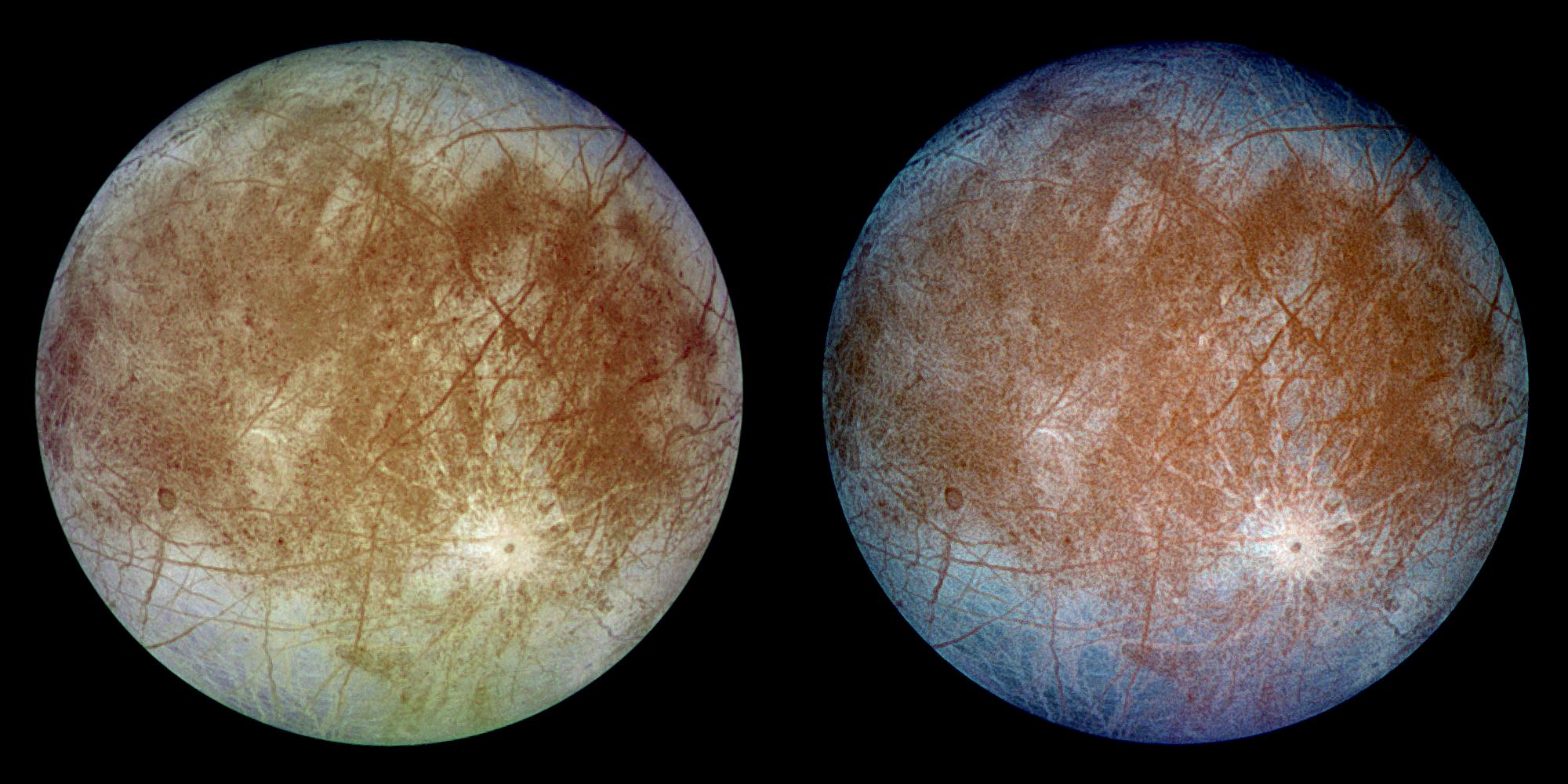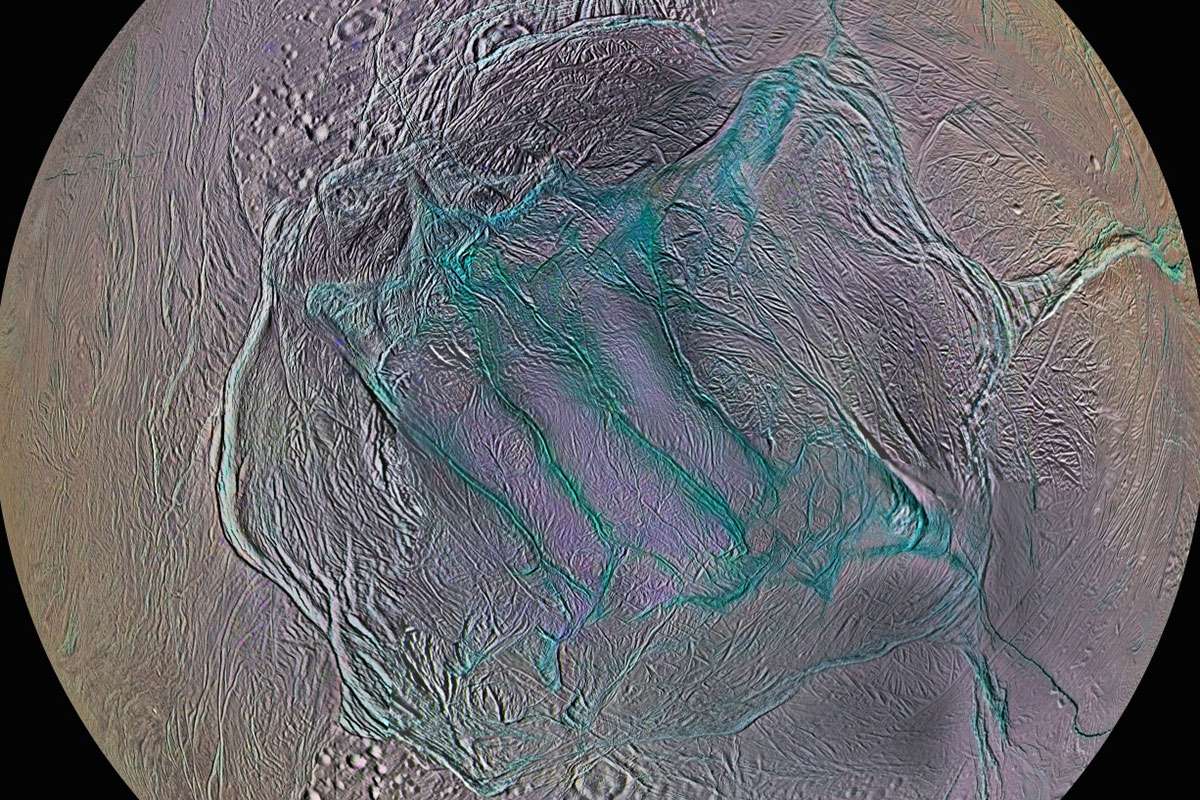It looks like you're using an Ad Blocker.
Please white-list or disable AboveTopSecret.com in your ad-blocking tool.
Thank you.
Some features of ATS will be disabled while you continue to use an ad-blocker.
15
share:

"On Mars, you probably have to go deep underground, many people believe — probably meters, if not dozens of meters, to see something potentially interesting," Milner said. "And Mars, most of the experts agree that if you find something, it will most likely be some historical artifacts of life, rather than a living organism. But you never know." Enceladus' inclusion on the list shouldn't come as a big surprise. Last November, Milner said that Breakthrough Initiatives was investigating the feasibility of launching a probe that would look for signs of life in the plume of water vapor and other material wafting from Enceladus' south polar region. This stuff comes from the 313-mile-wide (504 kilometers) moon's buried ocean, scientists say.
Billionaire Yuri Milner's Breakthrough Initiatives Eyes Private Mission to Seek Alien Life
It looks like NASA will offer billionaire entrepreneur and physicist Yuri Milner help on the first private deep-space mission: a journey designed to detect life, if it exists, on Saturn’s moon Enceladus, according to documents acquired by New Scientist.
Report: NASA and Yuri Milner Working Together on Life-Hunting Mission to Enceladus

I am not sure how you would use an orbiter to sniff the water vapor coming from the icy moon to find real proof of life.
Imagine the things that could be living under the ice on Enceladus. A rover on the surface of Enceladus would be exciting but still will not be able to see under the surface of the thick ice.
Maybe in the future man will be able to direct a comet into Enceladus and then drop a sub rover in the water to see what is under that ice!
Solar concentrator and time.
Let the sun do the heavy lifting on getting through the ice. The sooner we drop one on the surface, the better.
Let the sun do the heavy lifting on getting through the ice. The sooner we drop one on the surface, the better.
a reply to: LookingAtMars
Enceladus shoots geysers into space.
Cassini saw this on a flyby. They took a reading and found the ingredients like gas and sodium along with liquid water.
IFLScience.com - Icy Plumes Bursting From Saturn’s Moon Enceladus Suggest It Could Harbour Life.
They would not drop a rover into the water! They would not want to contaminate an entire planet with earth microbes. They would equip a satellite with more appropriate sensors to look for signs of life. Cassini was looking at the planet's vitals like the magnetic field, and temperature. That it even detected various chemicals coming off the surface was a revolutionary breakthrough!
Cool stuff!
Enceladus shoots geysers into space.
Cassini saw this on a flyby. They took a reading and found the ingredients like gas and sodium along with liquid water.
IFLScience.com - Icy Plumes Bursting From Saturn’s Moon Enceladus Suggest It Could Harbour Life.
They would not drop a rover into the water! They would not want to contaminate an entire planet with earth microbes. They would equip a satellite with more appropriate sensors to look for signs of life. Cassini was looking at the planet's vitals like the magnetic field, and temperature. That it even detected various chemicals coming off the surface was a revolutionary breakthrough!
Cool stuff!
originally posted by: TEOTWAWKIAIFF
a reply to: LookingAtMars
Enceladus shoots geysers into space.
Cassini saw this on a flyby. They took a reading and found the ingredients like gas and sodium along with liquid water.
IFLScience.com - Icy Plumes Bursting From Saturn’s Moon Enceladus Suggest It Could Harbour Life.
They would not drop a rover into the water! They would not want to contaminate an entire planet with earth microbes. They would equip a satellite with more appropriate sensors to look for signs of life. Cassini was looking at the planet's vitals like the magnetic field, and temperature. That it even detected various chemicals coming off the surface was a revolutionary breakthrough!
Cool stuff!
Just don't see how you can get real proof of life from orbit. They could sterilize the sub. As long as they do a better job than they did with MSL's drill bit.
Big mistake....we don't want em early....later will be fine......when are living teotwawki....tye one mentioned it that big book of olden days
a reply to: LookingAtMars
I wish him luck but NASA already sniffed Enceladus in 2015.
No harm having a second sniff though.
I wish him luck but NASA already sniffed Enceladus in 2015.
Data from NASA's Cassini spacecraft reveal complex organic molecules originating from Saturn’s icy moon Enceladus, strengthening the idea that this ocean world hosts conditions suitable for life. Research results show much larger, heavier molecules than ever before.
Powerful hydrothermal vents mix up material from the moon’s water-filled, porous core with water from the moon’s massive subsurface ocean – and it is released into space, in the form of water vapor and ice grains. A team led by Frank Postberg and Nozair Khawaja of the University of Heidelberg, Germany, continues to examine the makeup of the ejected ice and has recently identified fragments of large, complex organic molecules.
www.nasa.gov...
No harm having a second sniff though.
I suppose it will employ some engineers and scientists for a while. Better to have them work on a folly like that than sitting around unemployed,
waiting to sell their skills to somebody else.
Same reason they built the Pyramids. To keep a growing yet idle population from getting ideas.
Same reason they built the Pyramids. To keep a growing yet idle population from getting ideas.
Does not sound very ambisious enough.. Time to raket the gloves off.. Next year send a roversub hybrid and melt it down the ice. And record everything
in 4k. And livestream
originally posted by: Skywatcher2011
originally posted by: LookingAtMars
I smell conspiracy....
Cool, can you describe it?
ETA: Now that your picture has loaded I can see what you smelled
edit on 9-11-2018 by LookingAtMars because: (no reason given)
originally posted by: Spacespider
Does not sound very ambisious enough.. Time to raket the gloves off.. Next year send a roversub hybrid and melt it down the ice. And record everything in 4k. And livestream
Send two 4K cameras, so we can see it in 3D/VR and I am in!
I think there is a better chance of finding hard proof of alien life in the Antarctica then from orbit around Enceladus. Since it is just busy work. I
think the time and money should be spent melting and exploring the Antarctica.
Collect and study the meteorites you find on the surface of the ice and under the surface of the ice. Proof of alien life could be in one of the meteorites. This would be better proof than some readings from some sensors however many millions of miles away.
Collect and study the meteorites you find on the surface of the ice and under the surface of the ice. Proof of alien life could be in one of the meteorites. This would be better proof than some readings from some sensors however many millions of miles away.
edit on 9-11-2018 by LookingAtMars because: fix
originally posted by: LookingAtMars
Those pictures are not Mars or Enceladus. They are Jupiter's moon Europa. That was the first moon where we detected signs of an ocean under the ice. Tidal stresses from Jupiter make it geologically active, so it almost certainly has hot vents on the ocean floor, like we have discovered to be oasis-es of life in Earth's deep oceans.
This is a good video. And, only 12 mins long.
It mentions having to make the decision not to crash Cassini into Enceladus. And why.
Although. The mission itself took aboard the Huygens spacecraft . Which was dropped on Saturn's Moon Titan.
Enceladus was a later discovery. And, as Teot said. Cassini did fly through the plumes and collect data.
The next decade is going to be the most important time for space knowledge. IMO.
originally posted by: Saint Exupery
originally posted by: LookingAtMars
Those pictures are not Mars or Enceladus. They are Jupiter's moon Europa. That was the first moon where we detected signs of an ocean under the ice. Tidal stresses from Jupiter make it geologically active, so it almost certainly has hot vents on the ocean floor, like we have discovered to be oasis-es of life in Earth's deep oceans.
Opps, I google imaged Enceladus and it came up, thanks for catching that.
new topics
-
Bobiverse
Fantasy & Science Fiction: 2 hours ago -
Florida man's trip overseas ends in shock over $143,000 T-Mobile phone bill
Social Issues and Civil Unrest: 2 hours ago -
Former Labour minister Frank Field dies aged 81
People: 4 hours ago -
SETI chief says US has no evidence for alien technology. 'And we never have'
Aliens and UFOs: 6 hours ago -
This is our Story
General Entertainment: 9 hours ago -
President BIDEN Vows to Make Americans Pay More Federal Taxes in 2025 - Political Suicide.
2024 Elections: 11 hours ago
top topics
-
President BIDEN Vows to Make Americans Pay More Federal Taxes in 2025 - Political Suicide.
2024 Elections: 11 hours ago, 14 flags -
Should Biden Replace Harris With AOC On the 2024 Democrat Ticket?
2024 Elections: 17 hours ago, 6 flags -
One Flame Throwing Robot Dog for Christmas Please!
Weaponry: 16 hours ago, 6 flags -
Florida man's trip overseas ends in shock over $143,000 T-Mobile phone bill
Social Issues and Civil Unrest: 2 hours ago, 5 flags -
Don't take advantage of people just because it seems easy it will backfire
Rant: 16 hours ago, 4 flags -
Ditching physical money
History: 15 hours ago, 4 flags -
SETI chief says US has no evidence for alien technology. 'And we never have'
Aliens and UFOs: 6 hours ago, 4 flags -
Former Labour minister Frank Field dies aged 81
People: 4 hours ago, 4 flags -
Ode to Artemis
General Chit Chat: 12 hours ago, 3 flags -
This is our Story
General Entertainment: 9 hours ago, 3 flags
active topics
-
Ditching physical money
History • 16 • : twistedpuppy -
President BIDEN Vows to Make Americans Pay More Federal Taxes in 2025 - Political Suicide.
2024 Elections • 59 • : DISBOLD -
Europe declares war on Russia?
World War Three • 68 • : DISBOLD -
Tucker Carlson UFOs are piloted by spiritual entities with bases under the ocean and the ground
Aliens and UFOs • 44 • : DISBOLD -
Found this website, interesting! "THE GLOBAL SOURCING ASSOCIATION"
New World Order • 8 • : DISBOLD -
"We're All Hamas" Heard at Columbia University Protests
Social Issues and Civil Unrest • 273 • : FlyersFan -
The Reality of the Laser
Military Projects • 38 • : 5thHead -
VirginOfGrand says hello
Introductions • 3 • : F2d5thCavv2 -
The Acronym Game .. Pt.3
General Chit Chat • 7743 • : F2d5thCavv2 -
SETI chief says US has no evidence for alien technology. 'And we never have'
Aliens and UFOs • 25 • : Cvastar
15

